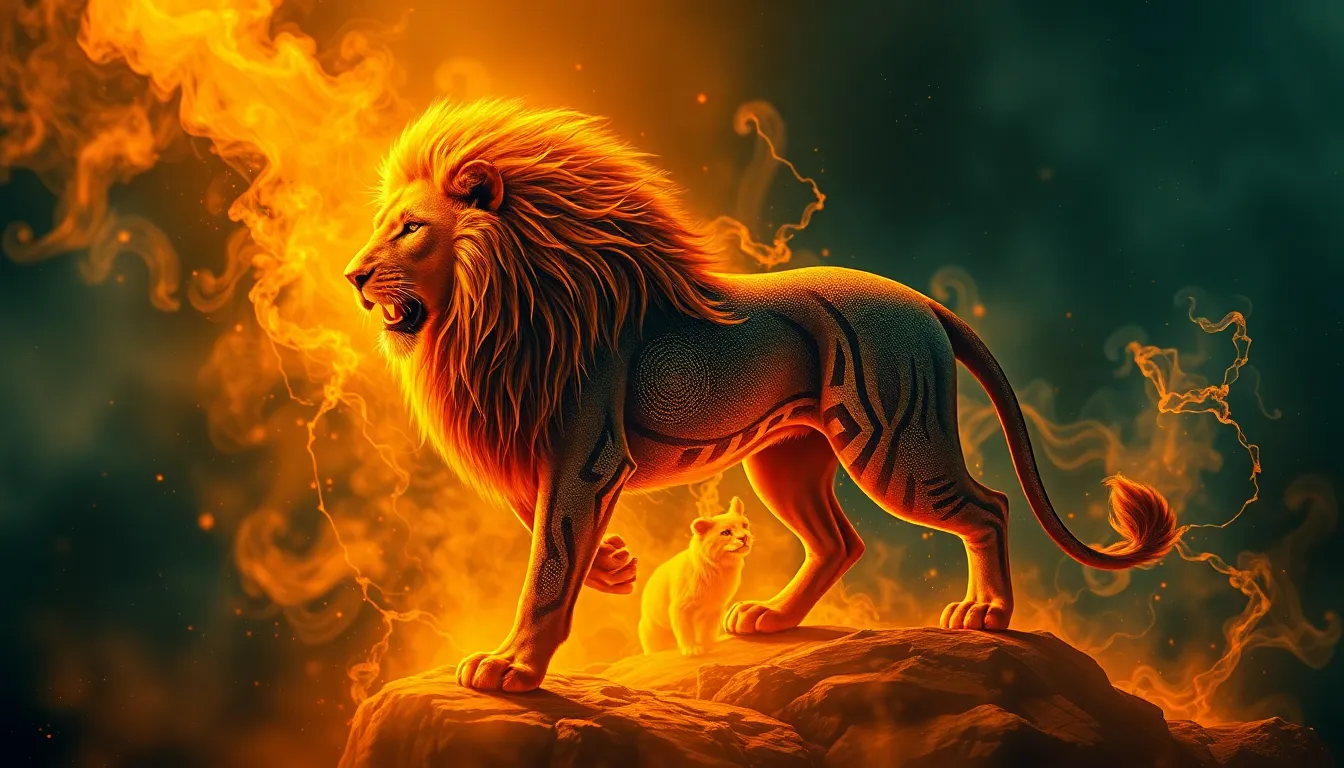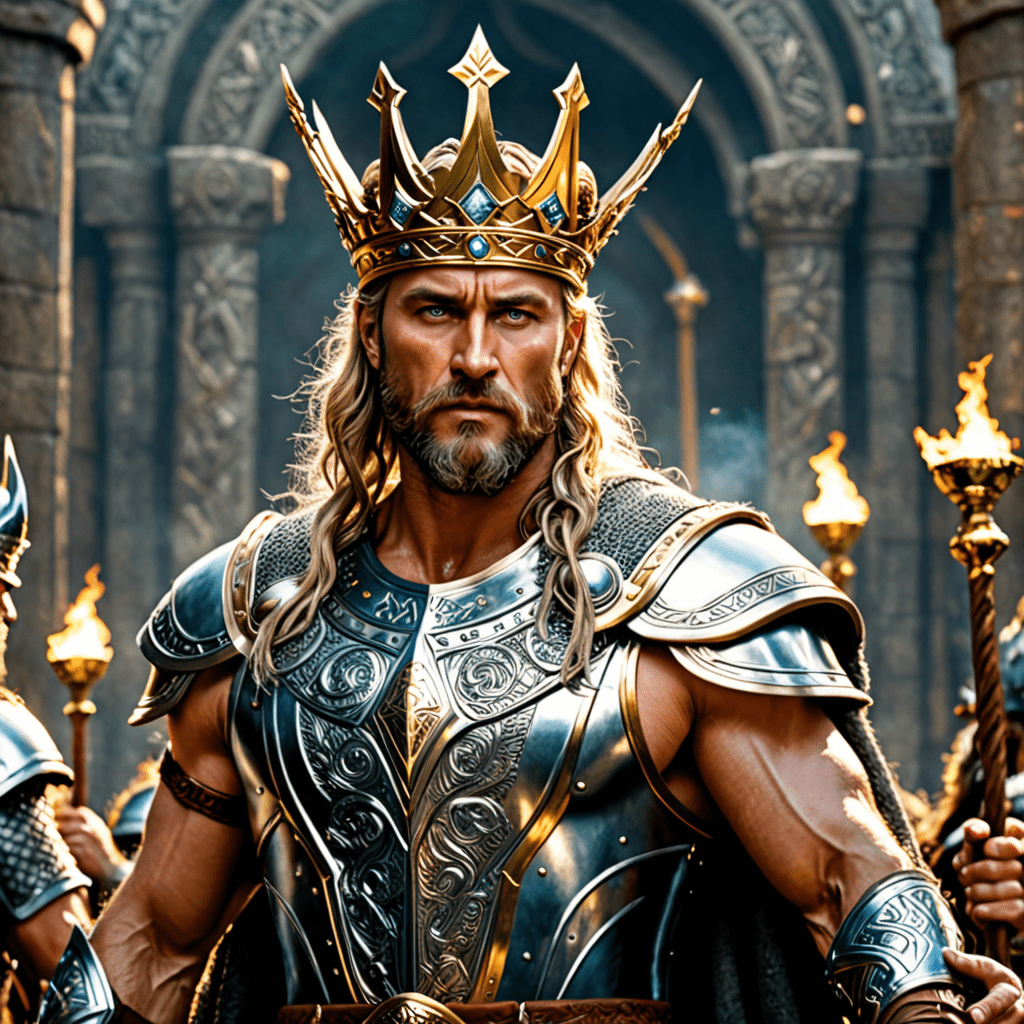The Symbolism of the Lion: King of Beasts in Mythology
1. Introduction to Lion Symbolism
The lion, often referred to as the “king of beasts,” has held a significant place in human mythology and symbolism throughout history. Across various cultures, the lion represents strength, courage, and nobility. Its majestic presence has inspired countless stories, art, and folklore, making it an enduring symbol in human civilization.
The importance of the lion extends beyond mere admiration; it has served as a totem of power, leadership, and protection in both ancient and modern contexts. As we explore the multifaceted symbolism of the lion, we will uncover its role in different mythologies and cultures around the world.
2. The Lion in Ancient Egyptian Mythology
In Ancient Egypt, the lion was deeply revered and associated with the goddess Sekhmet, who was depicted as a lioness. Sekhmet symbolized war, destruction, and healing, embodying the duality of the lion’s ferocity and nurturing aspects. Worshippers believed that by honoring Sekhmet, they could harness her power and protection.
Lions also held a prominent place in Egyptian art and architecture. They were often depicted in statues, tombs, and temples, symbolizing guardianship. The Sphinx, a mythical creature with a lion’s body and a human head, exemplifies this protective symbolism, standing guard over sacred spaces.
3. The Lion in Greco-Roman Mythology
In Greco-Roman mythology, the lion is famously associated with the Nemean Lion, a fearsome beast that was defeated by Heracles as one of his Twelve Labors. The Nemean Lion’s hide was impervious to weapons, symbolizing the ultimate challenge and the struggle against seemingly insurmountable odds.
Furthermore, lions were celebrated in Roman culture as symbols of strength and courage. They adorned gladiatorial arenas and were featured in various artworks, representing power and the triumph of the human spirit over fear and adversity.
4. The Lion in Eastern Mythologies
In Eastern mythologies, particularly Hinduism and Buddhism, lions hold significant meanings. In Hinduism, the lion is associated with the goddess Durga, who rides a lion as a symbol of her strength and ferocity in battle against evil forces. This representation underscores the lion as a protector of dharma (righteousness).
In Buddhism, the lion is seen as a guardian figure, often depicted in statues that guard temples. The lion’s roar is said to represent the teachings of the Buddha, symbolizing the power and authority of enlightenment.
5. The Lion in African Folklore
African folklore often revolves around the lion as a symbol of power and leadership. Among various tribes, the lion is seen as a revered creature that commands respect and authority. It is believed to embody the qualities of bravery, strength, and wisdom.
Many stories and legends feature lions as central characters, illustrating moral lessons and cultural values. For instance, in some cultures, the lion is portrayed as a wise king who teaches lessons about community and respect. These narratives emphasize the lion’s role as a leader and protector within the animal kingdom.
6. The Lion in Christian Symbolism
In Christian symbolism, the lion represents Christ and is particularly associated with the Evangelist Mark, who is often depicted with a lion as his symbol. This association highlights the lion’s qualities of courage, strength, and resurrection.
Lions also appear in biblical texts as symbols of both divine protection and judgment. For example, in the Book of Revelation, the “Lion of the tribe of Judah” signifies Christ’s royal lineage and his power to overcome evil.
7. The Lion in Heraldry and National Symbols
The lion has been a prominent figure in heraldry, representing nobility and courage in coats of arms and flags. Many royal families across Europe have adopted lions in their heraldic designs to signify strength and leadership.
In modern times, lions continue to feature in national emblems. Countries like England, Scotland, and Belgium prominently display lions in their coats of arms, symbolizing pride and national identity.
8. The Psychological Impact of Lion Symbolism
The lion’s symbolism extends into psychology, where it represents authority and bravery in the human psyche. The lion archetype resonates with individuals seeking strength and leadership qualities within themselves.
Psychological theories related to animal symbolism often explore how such archetypes influence our behavior and perceptions. The lion, as a powerful symbol, can evoke feelings of courage, assertiveness, and confidence, reinforcing its role as a leader in both nature and human society.
9. The Lion in Literature and Popular Culture
The portrayal of lions in literature has evolved over centuries. Classic works such as C.S. Lewis’s “The Chronicles of Narnia” feature Aslan, a lion that embodies goodness, sacrifice, and redemption. Aslan’s character illustrates the lion’s ability to symbolize both power and benevolence.
In contemporary films and media, lions continue to captivate audiences. Movies like “The Lion King” explore themes of leadership, responsibility, and the circle of life, further entrenching the lion’s symbolism in popular culture. These portrayals reflect society’s ongoing fascination with the lion as a symbol of strength and moral integrity.
10. Conclusion: The Enduring Legacy of the Lion
The lion’s multifaceted symbolism transcends cultures and time, symbolizing power, courage, and protection. From ancient mythologies to modern literature, the lion continues to inspire and resonate with humanity. Its enduring legacy reminds us of the qualities we aspire to embody, making the lion a timeless symbol in our collective consciousness.
As we navigate the complexities of modern society, the lion’s attributes of bravery, leadership, and strength remain relevant. Whether in art, literature, or personal reflection, the lion stands as a powerful emblem of the virtues we seek to cultivate in ourselves.




